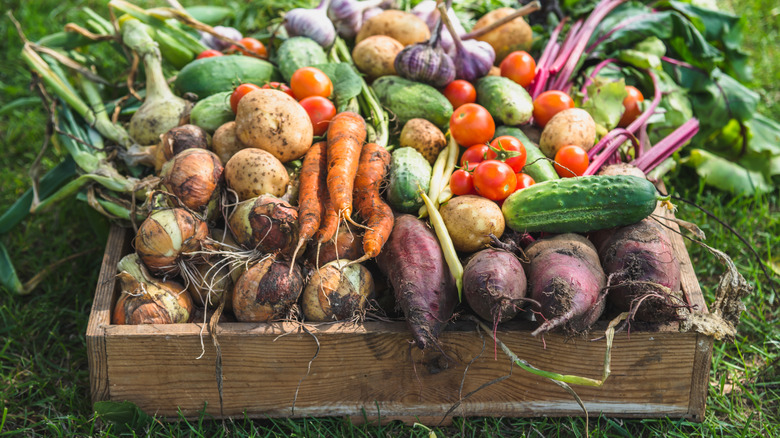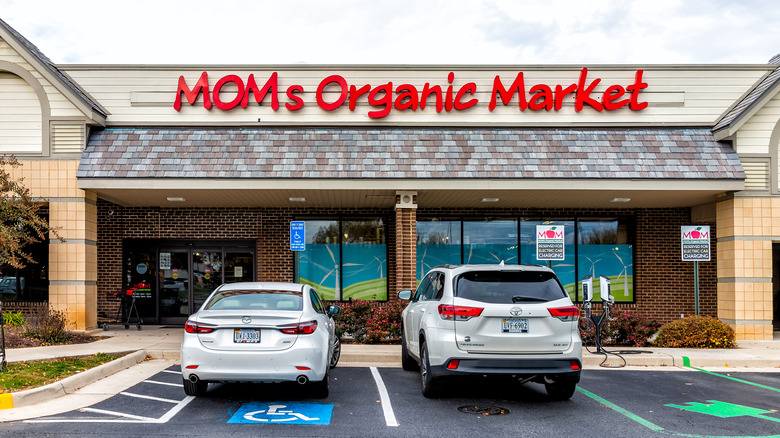Why Some Of MOM's Organic Market Produce Isn't Local
MOM's Organic Market is a small supermarket chain that primarily operates around Washington D.C. with some stores appearing in New Jersey and Pennsylvania. It can be compared to Whole Foods, but Supplement Police credits MOM's Organic Market with being stricter about what it sells. For example, all of its produce is organic, it doesn't sell food with high fructose corn syrup or preservatives, and none of its meat has been treated with growth hormones or antibiotics. The list goes on.
As one might imagine, this dedication appeals to a specific consumer audience. In 2018, Produce Business credited the company's success to how people are increasingly looking for locally-sourced organic produce. However, organic produce and local produce are two different categories. While you can have both, MOM's Organic Market errs on the side of organic rather than local.
MOM's Organic Market does carry local produce. However, Scott Nash, the founder of MOM's Organic Produce explained to Bethesda Magazine that, "[The Chesapeake Bay region] is not a hotbed for local farming because the season is so short here, whereas in California and Florida, the season is year-round. For a few months we carry tons of local stuff, so it's seasonal." If local were weighed more heavily, MOM's Organic Market would have to rely on customers accepting that the company must conform to a seasonal schedule. However, that consumer base might not be large enough.
There is also the logistical question
The decision to favor organic produce over local produce was also informed by Scott Nash's belief that organic food is simply a more valuable than purely local. Organizations like Countryside Food and Farms champion locally-sourced produce because it may be less expensive, healthier, and it supports the local economy. It also endorses consumers buying directly from farmers or from a farmers market, not a supermarket. Still, Nash is not necessarily impressed by a food's locality for MOM's.
"Frankly, if someone is farming chemically, I certainly don't want them residing near me or being part of the Chesapeake Bay watershed," he told Bethesda Magazine "Just because it's local doesn't mean it's good." He went further, opining that focusing solely on local produce can also overlook the difference in strength between various local economies. Nash believes that just because a farmer in Alabama isn't in the D.C. area doesn't mean they don't deserve support nor does the farmer in the Greater Washington D.C.-area automatically warrant support just because they're local.

